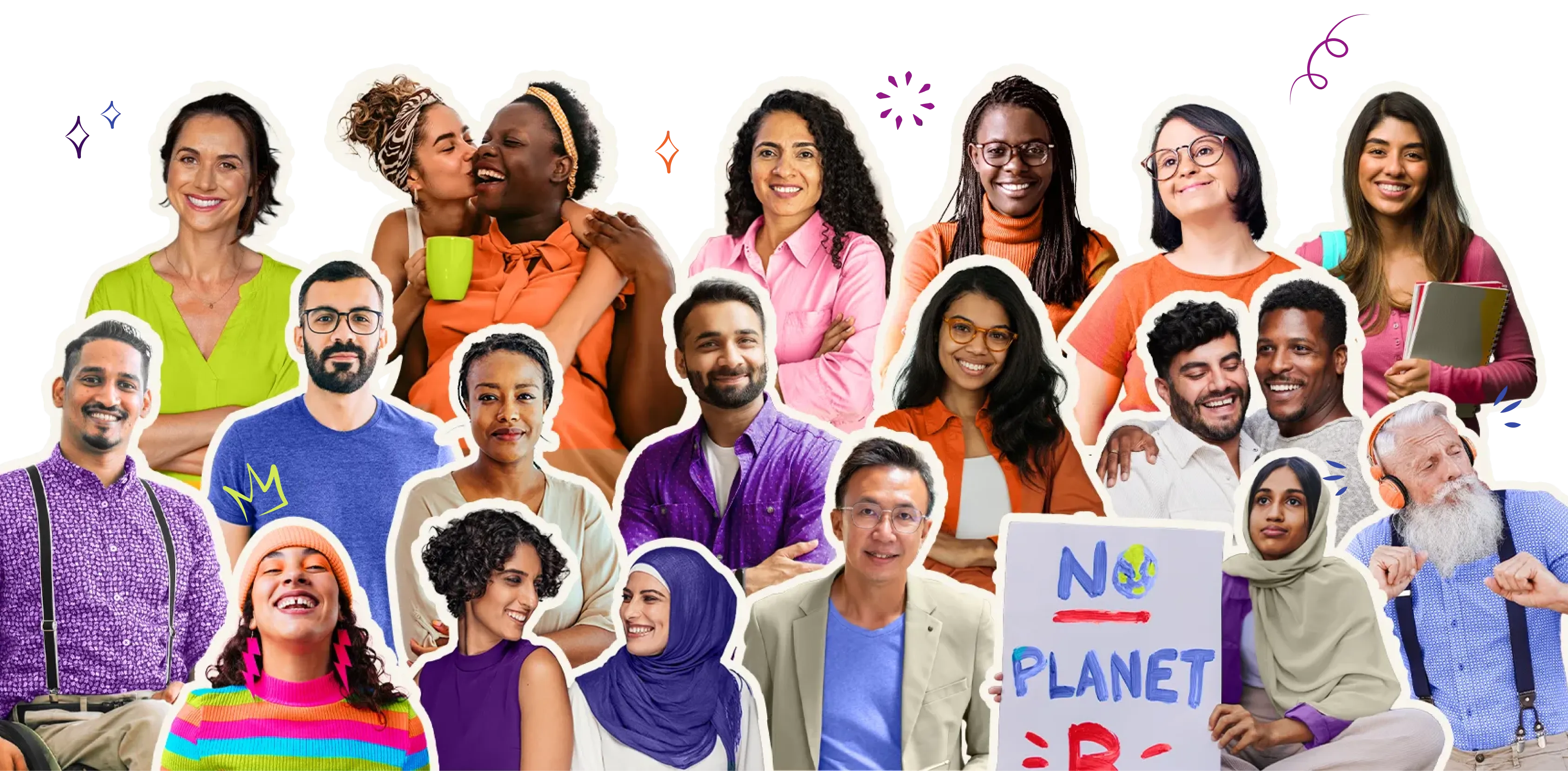Blog
I Remember the Journey to “Love Wins”
Reflection on what the DOMA debate was really about is to face the disgusting fact that the same dynamic of dividing us as a people for political and cultural gain — most corrosively around race and gender — plays out over and again.

Yesterday, the President signed into law the Respect for Marriage Act, which repeals the so-called “Defense of Marriage Act” and replaces it with statutory protection for a broad assortment of marriages — interracial, interethnic, and gay — as long as the marriage involves only two consenting adults.
I was physically present—cold at the outdoor signing ceremony but as warm as one could be with admiration for the nation’s change on this issue. When I was a younger man, we were routinely arrested and extorted. We could not be employed in most large workplaces, get a security clearance, adopt, teach in public schools, or serve in the military.
Twenty-six years have passed between Congress and President Clinton’s codification of the “Defense of Marriage Act” and its undoing. I was the Democratic counsel on the Subcommittee on the Constitution, and then the full House Judiciary Committee, charged with opposing this needless lightning strike of hatred. Congressman Barney Frank was the openly gay member, and squeamish Democrats were happy to have him front and center, taking body blow after another from a cohort of impure proponents. There was no gay marriage anywhere in the world, but an election was nearing, and it was as good a time as any for a legislative hate crime for electoral gain.
I was the just recently outed gay counsel for the opposition, freshly struggling with navigating family, personal life, and professional goals in a clearly hostile culture. During the debate and enactment of the anti-gay legislation, we witnessed the resolute smugness and self-righteousness of some of the conservative members of Congress, perfectly comfortable discussing, legislating, and regulating, well, us.
Yesterday was a trip down memory lane that required a seat belt, if not Percocet.
Reflection on what the DOMA debate was really about is to face the disgusting fact that the same dynamic of dividing us as a people for political and cultural gain — most corrosively around race and gender — plays out over and again.
I went back to the House Judiciary Committee’s report on the legislation to read the Committee’s dissenting views, to be bolstered by the nine courageous Democrats who put their name to this early support of gay marriage.
I wanted to see what lessons could be pulled from this 26-year wait; what withstood the test of time.
The dissenting views laid the groundwork for the Supreme Court’s Obergeffel decision approving gay marriage under the Constitution, and yesterday’s decision by President Biden to support it by statute.
We argued in those views that the federal government never had a role in defining qualifications for marriage, and that if a State wanted to include same-sex couples in its marriage law — by court, referendum, or state legislative action—the federal government should follow that State’s decision. These brave Democrats — Conyers, Frank, Berman, Nadler, Watt, Lofgren, Waters, Schroeder, and Becerra — were exposing the crude hypocrisy of a Congressional majority that publicly and loudly organized under “States’ Rights” but jettisoned that principle when they didn’t like the State or the right. Many Democrats surfed on this wave of fast-moving bigotry. In fact, the majority of Democrats did. Over the next twenty-odd years, many of these Democrats recanted, their apologies dripping out slowly, as they faced electorates more and more sold on the proposition that love, not a registrar, forms a family.
The 1996 hearings and markups and debates were emotional. And hard.
We tried in our dissenting views to sum up the moral question thusly —
Our final ground for opposing this bill is our vehement disagreement with the notion that same sex marriages are a threat to marriage … The notion that allowing two people who are in love to become legally responsible to and for each other threatens heterosexual marriage is without factual basis. Indeed, when pressed during Subcommittee and Committee debate, majority Members could give no specific content to this assertion. The attraction that a man and a woman feel for each other, which leads them to wish to commit emotionally and legally to each other for life, obviously could not be threatened in any way, shape or form by the love that two other people feel for each other, whether they be people of the same sex or opposite sexes. There are, of course, problems which men and women who seek to marry, or seem to maintain a marriage, confront in our society. No one anywhere has produced any evidence, or even argued logically, that the existence of same sex couples is one of those difficulties.
The debate about the regulation of love unearthed amazing emotions, joy, and pain.
Congresswoman Maxine Waters moved experienced and jaded members of the Committee and staff to tears during mark-up, with her acute embrace of Congressman Barney Frank. Republican Sonny Bono said with a genuine vulnerability that he was friends with Barney, that he and his wife socialized with Barney and his then partner, but he just couldn’t bring himself to support gay marriage. And Mrs. Waters used her time to say to Mr. Bono that, in fact, he could. That she loved Barney, too, and was going to fight for him to be free.
There was a Republican committee counsel who staffed Chairman Henry Hyde and Subcommittee Chair Charles Canady, chief proponents of the legislation, along with lead sponsor Congressman Bob Barr, who was on his third marriage that needed defending. This counsel, roughly my age, was another loyal foot soldier doing the hard work of writing into law that my love, my potential marriage, was the abomination that undermined his. This man called me some 15 years later to tell me that his now high school child had come out to him and apologizing for his role in the legislation. I respected the call, but I didn’t have the standing to offer absolution. It served to reinforce my long-held view that so many conservatives are empathic when it affects them directly, while progressives are continually worried about whole cohorts.
The most significant aspect of today is the reminder of the persistence of dividing us as a people by claiming that the advancement of some of us is an affront to the rest. This was the “Defense of Marriage Act,” a rampart that had to be built because a gay marriage diminishes a straight marriage.
And of course, this is how the right demonized affirmative action, and access to voting, and TANF, and criminal justice reform, and so many other things. The common sad thread is if we improve the lot for an oppressed group, then we “real Americans” lose out. The vicious and fast-moving attacks on “critical race theory,” meant to whiten curriculum and remove progressive and centrist school board members, is a recent example of this bigoted nonsense. Made more pernicious as promoters of the attacks brag that they created the issue out of whole cloth, for power.
Dr. King and so many others try to teach us that discrimination and bigotry harm the targeted group, of course, but it also corrodes the larger society. It forces the majority to teach itself lies, and to repeat those lies until they become history.
A crescendo of disingenuous leaders convinced straight people [and some closeted gays] that my love, and the solemnization of that, harm them. Shame on all of us who jump on fast-moving bigotry bandwagons because standing fast is too hard.
I went to the White House yesterday and was so pleased with the progress. I took one of my nieces, and her wife, comfortably in a gay marriage. It was joyous on both a professional and personal level.
But I will say a prayer for the tougher policy battles not won, so many around race. For the bigots who insist that our education system would be perfect if we just didn’t teach our sordid racially violent history. For the bigots who insist that higher education would be meritorious and fair if we just didn’t focus on diversity.
And, then, the next day me and my team, and many of you, will continue the fight to prove them wrong, again.


